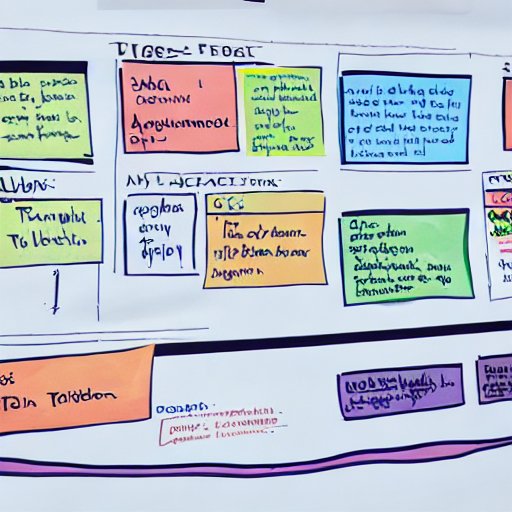What is agile project management? Agile project management is an approach to managing projects that values flexibility, collaboration, and customer satisfaction. It is based on the Agile Manifesto, a set of guiding values and principles for software development that prioritizes individuals and interactions, working software, and customer collaboration over processes and tools. Agile project management is characterized by iterative and incremental delivery, adaptive planning, and flexible response to change. It is often used in software development, but can also be applied to other types of projects. Agile methodologies, such as Scrum and Kanban, provide frameworks for implementing agile project management principles and practices.
Agile is like a blueprint for how to run a project. It's not the only way to do things, and different companies can use it in different ways that work best for them.
Agile principles are designed to be flexible and adaptable, which can make them a good fit for the translation industry. However, the nature of translation projects can make it difficult to fully implement Agile methodologies. Translation projects often involve a significant amount of upfront work, such as research and terminology management, which may not fit well into the Agile framework. Additionally, translation projects often have strict deadlines and deliverables, which can make it difficult to incorporate the Agile principle of delivering working software incrementally. Despite these challenges, some elements of Agile can be applied to translation projects such as:
Breaking Projects Down into Manageable Chunks
In order to effectively manage a translation project, it is important to break it down into smaller, manageable chunks. This allows for better organization and oversight of the project, as well as the ability to track progress and identify potential issues more easily. One way to accomplish this is by breaking the project down into smaller tasks and assigning them to specific team members. This will not only make the project more manageable but will also make it more efficient.
Prioritizing and Reprioritizing Tasks
The translation industry is a dynamic and fast-paced field, and it is important for project managers to be able to prioritize and reprioritize tasks based on changing project requirements. This requires the ability to quickly assess the situation, identify the most important tasks, and then reassign resources as needed. Additionally, the project manager should be able to communicate these changes effectively to the team, to ensure that everyone is on the same page.
Encouraging Regular Communication and Collaboration
Effective communication and collaboration among team members are key to the success of any translation project. Project managers should encourage regular communication among team members, through meetings, emails, and other forms of communication. This will not only help to keep everyone informed, but it will also help to identify and resolve issues more quickly. Additionally, a project manager should be able to build and maintain strong relationships with clients, to ensure that their needs are met and to avoid any misunderstandings.
Continuously Monitoring and Adjusting Progress
Project managers should be constantly monitoring and adjusting project progress to ensure successful completion. This requires the ability to collect and analyze data, track project milestones, and identify potential risks and issues. Additionally, project managers should be able to develop and implement solutions to address these issues, and to make adjustments as needed to ensure that the project stays on track. This will help to increase efficiency and productivity, and to ensure that the project is completed on time and within budget.
Encouraging Flexibility to Adapt to Change
In the translation industry, change is a constant, and project managers should be able to adapt to it. This means being flexible and open to new ideas, and being willing to make changes as needed. Additionally, project managers should be able to manage and lead a team that is also flexible and open to change. This will help to ensure that the project stays on track and that the team is able to adapt to new challenges as they arise.
Conclusion – what is agile project management?
Project management skills are essential for success in the translation industry. By breaking projects down into manageable chunks, prioritizing and reprioritizing tasks, encouraging regular communication and collaboration, continuously monitoring and adjusting progress, and encouraging flexibility to adapt to change, project managers can effectively lead their teams to success. One option for translation agencies to achieve success in project management is to consider working with a specialized provider that has experience and knowledge in the industry, such as Slavis Translations.

